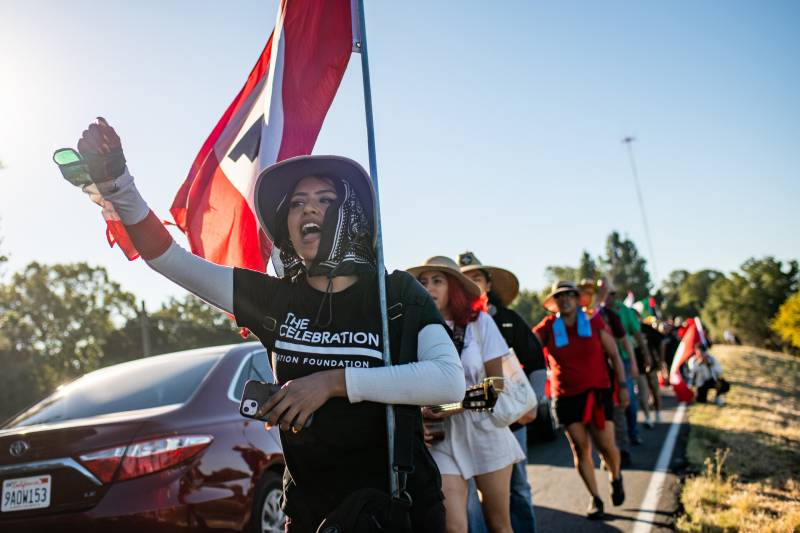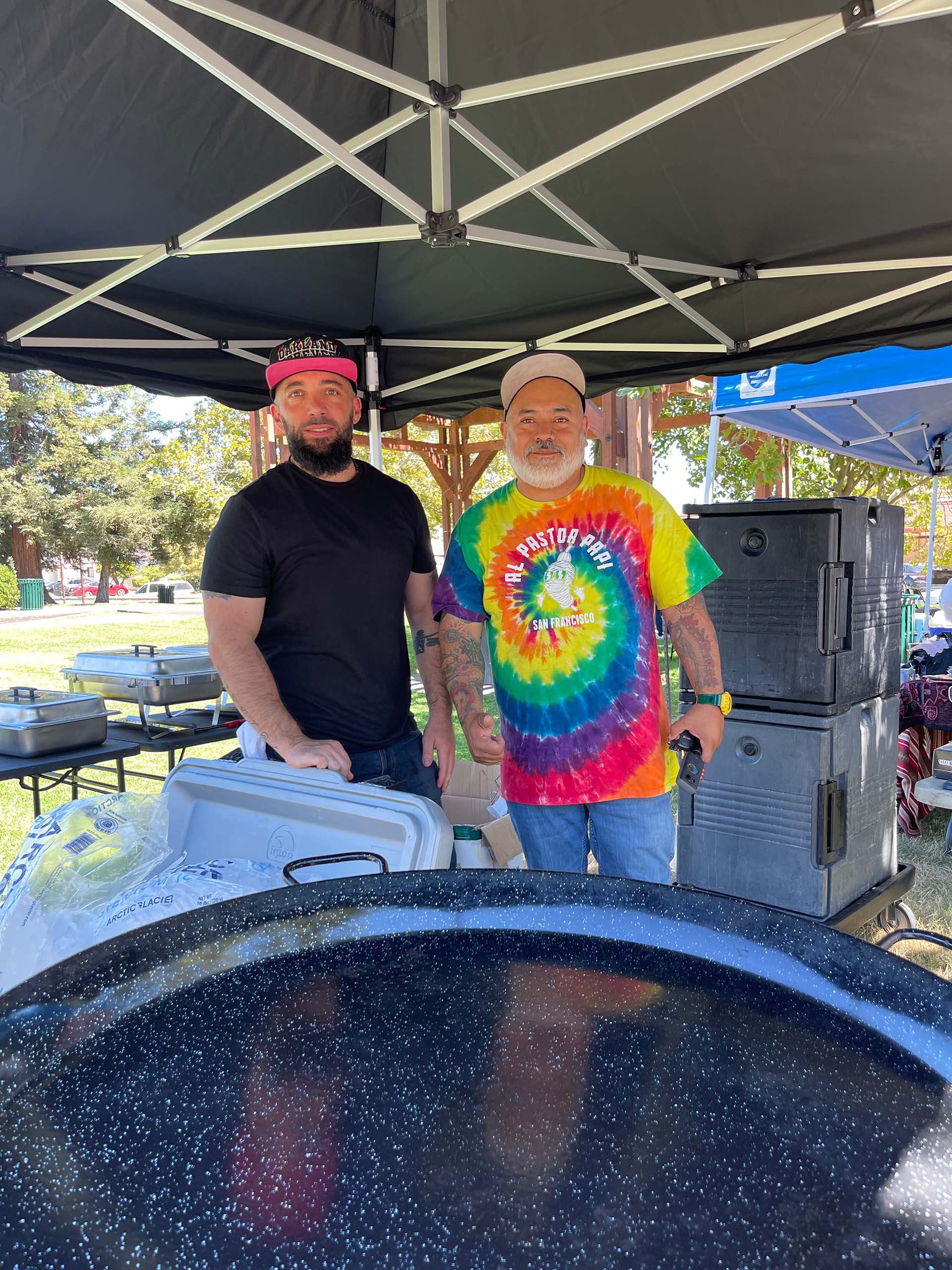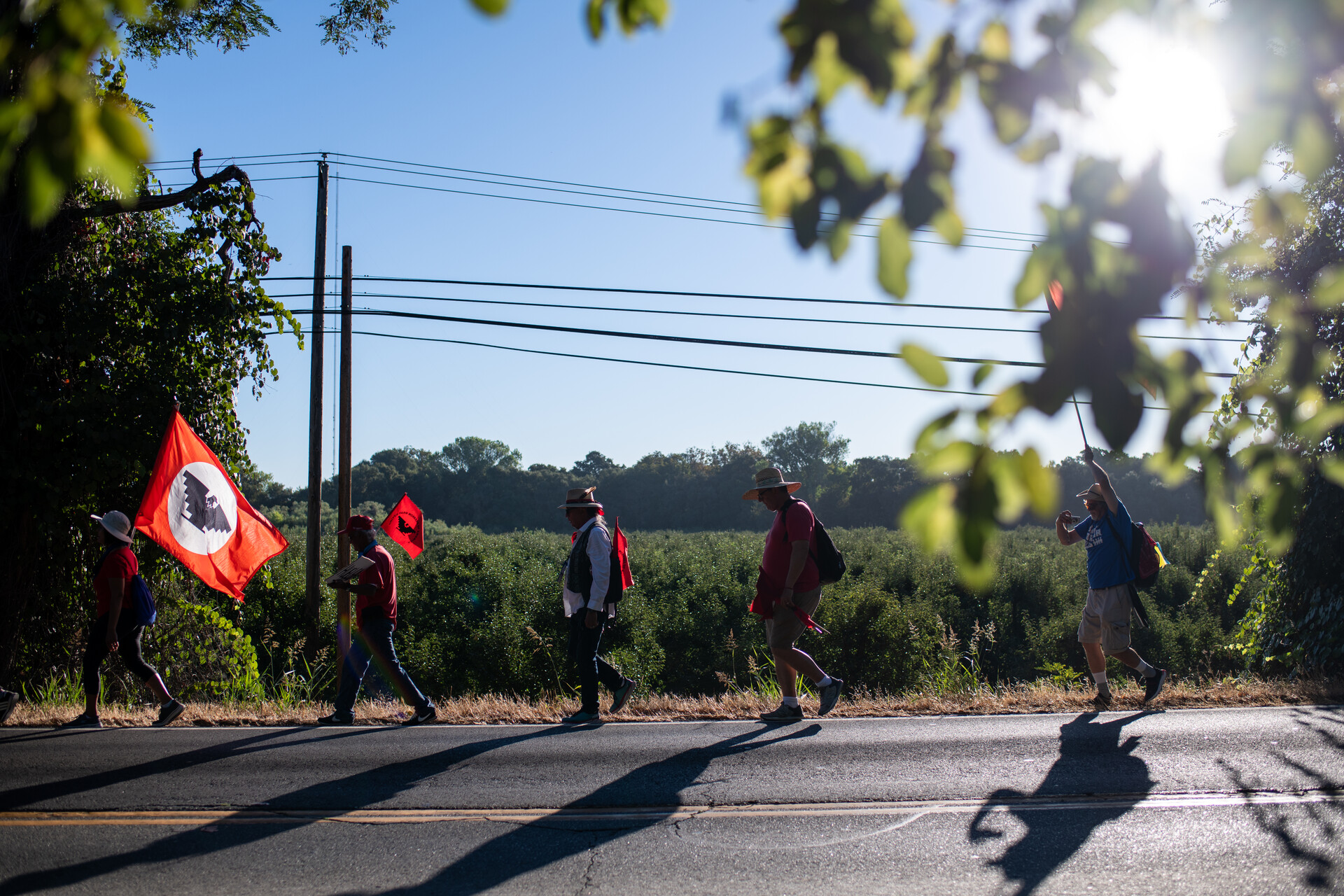Long before his food truck, Al Pastor Papi, became San Francisco’s most prominent ambassador of tacos al pastor, Miguel Escobedo had an even more basic connection to food: He was the grandchild of farm workers. His grandfather first came to the United States from Mexico in the late 1950s to work in the fields through the government-sanctioned Bracero program. That was the beginning of his family’s American journey. For Escobedo, then, the challenges and struggles that farm workers face have always felt intensely personal.
“My success—and hundreds of restaurateurs’ success—is pinned to the labor of my grandfather and all those people,” he says.
So, when Escobedo heard about the historic, 335-mile march that the United Farm Workers embarked on this month—walking from California’s Central Valley all the way up to Sacramento—to demand that Governor Gavin Newsom sign a bill expanding farm workers’ union voting rights, he knew he needed to show his support.
Last week, Escobedo announced to Al Pastor Papi’s 33,000-plus Instagram followers that he would be donating 10% of proceeds from the taco truck’s Friday night Fort Mason Off the Grid gig to support the UFW march—a fundraising effort that wound up yielding more than $600. Then, on Tuesday morning, Escobedo loaded up his truck with hats, socks and big cases of water, Gatorade and hydration powder. He drove up to Walnut Grove, some 30 miles outside of Sacramento, and spent the afternoon passing the supplies out to farm workers who were finishing up another long day of marching in the sweltering 94-degree heat—many had already walked for 20 days. He gave hugs to as many of them as he could.




